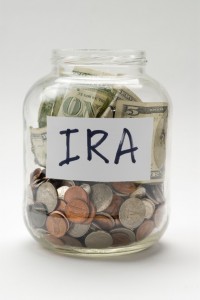Can You Contribute to an IRA If You Don’t Have a Job?
There is a lot of confusion surrounding the eligibility of contributing to a retirement account. I covered the topics of contributing to an IRA as a teenager and while you are in college.
But what about if you are unemployed? Can you still contribute to a retirement account if you don’t have a job? As with anything related to the tax code, the answer is yes…and no.
Can You Contribute to a 401k Without a Job?
No. When it comes to contributing to a 401k plan when you don’t have a job, the answer is no. First of all, an employer needs to sponsor the plan. Therefore, if you don’t currently have a 401k, you cannot open one. That is unless of course you are an employer yourself. But if this were the case, then you would be employed and you would be eligible for a Solo 401k.
But let’s look at a more common situation. You have a 401k at an old employer and you want to contribute to it. Unfortunately, you cannot contribute to the plan since you don’t have a job. In most cases, the old employer won’t let you invest in the 401k plan even if you did have a job. This is one of the reasons why it makes sense to roll over your old 401k plans to either an IRA or your current employer’s 401k plan, if they allow for rollovers.
Can You Contribute to an IRA If You Don’t Have a Job?
Maybe. You have to give it to the tax code because you can contribute to a Traditional or Roth IRA without a job. But you might not be able to either. Sorry, I don’t make up the rules. Let’s first tackle the possibility of contributing to an IRA without a job.
In order to contribute to an IRA in a given year, you need to have earned income. Earned income is income earned from a job, net earnings from self-employment, long term disability benefits and union strike benefits. Interest, dividends, child support, alimony, Social Security benefits, pension income, unemployment benefits and capital gains are not considered earned income and are therefore not eligible.
So let’s say you have earned income earlier this year but you are currently unemployed. The IRA limits state you can contribute 100% or $5,500 whichever is less, in 2013 to a Traditional or Roth IRA. If you earned $2,000 this year, then you can contribute all $2,000 to an IRA, regardless if you are currently employed or not. The key here is that you earned the income in 2013.
If for example, you earned $10,000 this year, the most you can contribute is $5,500. This then takes us to when you cannot contribute to an IRA. Luckily, it is fairly straightforward. If you have no earned income for the year, then you cannot contribute to an IRA this year.
Trouble happens when you enter the next year and have earned income. Let’s look at this situation. Assume you did not work in 2013 and therefore have no earned income. When contributing to an IRA you can contribute to an IRA for 2013 from January 1, 2013 through April 15, 2014. Many people make the mistake of making a 2013 contribution thinking they can use the money they made in the beginning of 2014. This is not the case. You can only contribute to an IRA if you had income for that taxable year, January 1 through December 31.
Spousal IRA
Even with all of that said, there is still one more exception. Again, I apologize, I don’t make the rules. If your filing status is married and file jointly, your spouse can make IRA contributions for both himself or herself and his or her spouse even if the spouse does not work. To qualify the spouse that is making the contribution has to have earned enough income to cover both contributions. This means that if your spouse makes the maximum contribution for both of you, $5,500 then they need to have earned income of at least $11,000 for that year.
Final Thoughts
As I mentioned, when it comes to taxes, there are rules and then there are exceptions to those rules. Unfortunately, many times there are exceptions to those exceptions as well! In a quick summary as to whether or not you can contribute to a retirement account, assuming you are unemployed you:
- Cannot contribute to a 401k plan regardless.
- Can contribute to a Traditional/Roth IRA if you had earned income for the given year.
- Cannot contribute to a Traditional/Roth IRA if you did not have earned income for the given year.
- Can contribute to a Traditional/Roth IRA regardless if you have earned income if you are married filing jointly and your spouse makes a contribution on your behalf.
I hope this clears up this issue for you. If you have any questions, just ask!






This just highlights why the tax code in this country needs to be simplified. It’s absurd that individuals can’t do their own taxes anymore due to the complexity of how everything is set up.